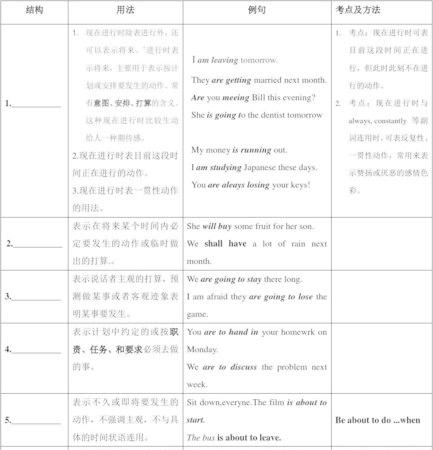在英语中,表示将来时态的进行时态有多种方式,包括“be going to”用于表示计划或打算,现在进行时表达将来的安排或计划,现在简单时态表示有时间表或安排的将来事件,以及“will”与进行时态结合表示将来会发生的事情。

1. Be going to
“be going to”是最常见的表达将来时态的进行时态,它可以用来表示计划或者打算要做某事。例如:
- I am going to study English in the evening.
- They are going to travel around the world next year.
2. Present continuous
除了“be going to”之外,现在进行时态也可以用来表示将来要发生的事情。这种用法通常带有一定的安排或者计划。例如:
- I am meeting my friends tomorrow.
- She is flying to New York next week.
3. Present simple
有些动词可以用现在简单时态表示将来要发生的事情。这种用法通常带有一定的时间表或者安排。例如:
- The train leaves at 8pm tonight.
- We have a meeting at 10am tomorrow.
4. Will
虽然“will”是未来时态的标志,但是它也可以和进行时态一起使用,表示将来会发生的事情。例如:
- I will be waiting for you at the airport.
- They will be arriving late tonight.
